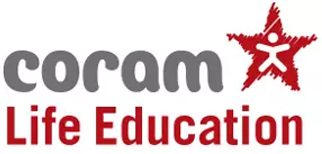For this teachers and education professional session welcomed Professor Dennis Ougrin to share his knowledge and insights into self-harm and suicide; specifically exploring the complexity around this phenomenon, by providing data on prevalence, risk factors and strategies for support. Dennis will also be answering your questions in a session facilitated by leading education professional Professor Barry Carpenter.
Professor Ougrin is the author of Therapeutic Assessment, a novel model of assessment for young people with self-harm. He also developed and tested an Intensive Community Care Service model for young people with severe psychiatric disorders called Supported Discharge Service. Professor Ougrin has expertise in conducting randomised controlled trials in the fields of psychological therapy and mental health service models.
Slides from the session
ACAMH Members can receive a CPD certificate, simply email and let us know the date and time that you watched the recording.
About the event
Self-harm is an increasingly recognised phenomenon and one of the strongest predictors of suicide, which continues to be one of the leading causes of death in young people worldwide. Self-harm can take many forms and may present with or without suicidal intent and both in the context of mental disorder, and without.
Self-harm does not occur exclusively in the context of mental disorder, there are many known psychosocial risk factors and it is associated with a range of mental disorders including anxiety, depression and attention deficit hyperactivity disorder (ADHD).
As anchor institutions in society, schools play an important role in identifying, referring and supporting pupils who may be at risk of self-harming. As teachers, it is important to be aware of some of the risks, clues and cues of self-harm, in order to better support children & young people who are experiencing difficulties.
Key Takeaways
- Identify the general trends in self-harm and suicide
- Recognise the risk factors for self-harm in children and adolescents
- Explore the role of emotional regulation in supporting young people who are at risk of self-harm & suicidal ideation
Resources
Topic Guide
Self-harm is an increasingly recognised phenomenon and one of the strongest predictors of suicide, which continues to be one of the leading causes of death in young people worldwide. Self-harm can take many forms and may present with or without suicidal intent and both in the context of mental disorder, and without.
Podcasts – we have a number of different podcasts on this topic
Literature review of support tools for school staff to respond to CYP self‐harm – CAMHS around the Campfire recording
A review of literature of support tools for school staff to respond to CYP self‐harm, with the focus on Aureliane Pierret (pic), Dr. Joanna Anderson, Professor Tamsin Ford, and Dr. Anne‐Marie Burn, CAMH paper ‘Review: Education and training interventions, and support tools for school staff to adequately respond to young people who disclose self‐harm – a systematic literature review of effectiveness, feasibility and acceptability.’
Understanding Self-Harm
TRIGGER WARNING: Please be aware that this blog discusses self-harm, including personal experiences of self-harm. It is estimated that between 10%-20% of all people self-harm at some point during their lifetime. It is hard to gather exact figures due to the stigma surrounding self-harm, and because people try to hide their wounds, scars and bruises. Watch this 8-minute film to understand more.
NICE guidelines for self-harm: a new school of thought
New NICE guidelines for the management of self-harm in the UK emphasise the important role of non-specialists. In this article, Holly Crudgington and Dennis Ougrin discuss this guidance, focusing on the new advice for schools and its implications.
How effective are tools to help school staff better respond to young people who self-harm?
Aureliane Pierret and colleagues at the University of Cambridge carried out a systematic review into the effectiveness, feasibility and acceptability of interventions and tools to support school staff to better respond to young people who disclose self-harm.
About the Speakers

Professor Ougrin graduated from a medical school in Ukraine in 1998 and came to the Maudsley hospital in the UK to undertake his post-graduate training in child and adolescent psychiatry. He worked as a consultant child and adolescent psychiatrist establishing and leading intensive community care services at South London and Maudsley NHS Foundation Trust. He also led the MSc in Child and Adolescent Mental Health at King’s College London and acted as the Chief Investigator of major NIHR, MRC and charity-funded studies in the field of self-harm and intensive community care services. In 2018-2020 Professor Ougrin was the editor-in-chief of Child and Adolescent Mental Health, a key clinical journal in child and adolescent psychiatry, psychology and allied disciplines. In September 2021 Professor Ougrin was appointed to lead the Youth Resilience Research Unit at Queen Mary University of London.
Professor Ougrin leads a programme of global mental health studies aimed at developing community mental health services in Ukraine and other Low- and Middle-Income Countries. His main professional interests include the prevention of Borderline Personality Disorder and effective interventions for self-harm in young people.
Professor Ougrin is the author of Therapeutic Assessment, a novel model of assessment for young people with self-harm. He also developed and tested an Intensive Community Care Service model for young people with severe psychiatric disorders called Supported Discharge Service. The model was evaluated in the first randomised controlled trial of an intensive community care service for young people in the UK. The results of the trial informed the development of intensive community care services in the UK and internationally. Professor Ougrin has expertise in conducting randomised controlled trials in the fields of psychological therapy and mental health service models. Professor Ougrin also works on developing modular psychotherapeutic interventions for self-harm and on understanding the pathophysiology of self-harm in young people.

Professor Barry CarpenterProfessor Barry Carpenter has been appointed to the ACAMH Board with special responsibility for disseminating our work to schools, teachers, and others involved in the education of children and young people. Barry is the UK’s first Chair of Mental Health in Education, at Oxford Brookes University
In a career spanning more than 40 years, Barry has held the leadership positions of Headteacher, Principal, Academic Director, Chief Executive, Inspector of Schools and Director of the Centre for Special Education at Westminster College, Oxford. In 2009, he was appointed by the Secretary of State for Education as Director of the Children with Complex Learning Difficulties and Disabilities Research Project. Since completing that research, Barry has overseen the development of a national project developing online ‘Training materials for teachers of children with severe, profound and complex learning disabilities’ www.complexneeds.org.uk
Full bio on ACAMH Board page.
About the ‘Ask the Expert’ sessions
This FREE ‘Ask the Expert’ online event is for teachers and education professional, and offers insights into the latest evidence-base around anxiety in children & adolescents. They are brought to you as part of an exciting new partnership between The Association for Child and Adolescent Mental Health (ACAMH) and Coram Life Education (CLE), two charities who are dedicated to making a difference to the mental wellbeing of children and young people.
Following our pilot events in Autumn 2021 / Spring 2022, we have a series of ‘Ask the Expert’ events over the coming year, to help close the knowledge gap in a range of topics that now form part of the statutory Relationship, Sex and Health Education (RSHE) curriculum. We think it is important to help equip teachers with knowledge in areas that may be less familiar to them, which is grounded in academic rigour.
Our ‘Ask the Expert’ sessions are primarily aimed at knowledge building, we will be working on other initiatives to help evolve pedagogical approaches based on the evidence we share at these ‘Ask the Expert’ events.

Coram Life Education is the leading provider of relationships, health, wellbeing, and drugs education to almost half a million children across the UK, delivered under the strapline ‘Helping Children Make Healthy Choices’. Trained Educators use evidence-based, interactive, creative methods and resources to stimulate curiosity and imagination amongst children in 1 in 10 English and Scottish primary schools (2,041 schools).
Our memorable life skills sessions are currently delivered as ‘Life Base’ in school or as ‘SCARF Live Online‘ sessions via Zoom. Coram Life Education takes a three strand approach addressing children’s knowledge, skills and attitudes, and programmes are aligned with the National Curriculum (Citizenship, PSHE Education), covering all Key Stages. Coram Life Education helps schools meet their statutory requirements for Relationships and Health Education, children’s Spiritual, Moral, Social and Cultural development, and Ofsted inspection criteria for personal development, behaviour and welfare. Coram Life Education’s programmes are also aligned with Scotland’s Curriculum for Excellence. Recognising the role of the community and home life in influencing children’s choices, we design our programme with schools and deliver special sessions and assemblies for parents and carers to amplify our effectiveness.
Sign up to this free event at this link or on the Book Now button at the top of the screen and complete the form that follows.



